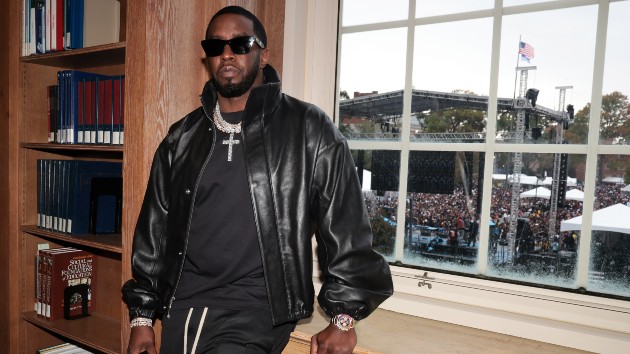AI is driving a stock market rally. What if the technology falters?
Written by ABC AUDIO on March 5, 2024

(NEW YORK) — Ten days after the Super Bowl, Wall Street held its own version — at least that’s the way some traders on social media described it.
Nvidia, which had soared to prominence selling the majority of chips behind the artificial intelligence boom, was set to release buzzy quarterly earnings that could move markets.
The company didn’t disappoint, shattering expectations with a 265% surge in revenue compared to a year earlier.
The following day, the S&P 500 jumped 2.5%; while the tech-heavy Nasdaq rose nearly 3%.
“That was strictly because of Nvidia’s good earnings. It demonstrated the power of AI,” Steve Sosnick, chief strategist at trading firm Interactive Brokers, told ABC News.
“But I was wondering: What if we flipped it on its head and Nvidia failed to deliver?” Sosnick added. “If you live by a narrow group of stocks and that group is really dragging the market higher, it increases the level of risk.”
The stock market has climbed since the outset of last year, driven in large part by a group of major tech companies propelled by enthusiasm over AI. Bulls said the trend exemplifies typical concentration at the beginning of a technological revolution, as a few firms with outsized resources develop and popularize AI.
Critics, however, warn that profit-making uses of AI remain a far-off vision, risking a market downturn if the technology falls short of the watershed that boosters have promised. Many people with 401(k)s and college funds dependent on the S&P 500 could end up burned, some analysts told ABC News.
“AI has gone into hyperdrive,” Sosnick said. “Everyday people buy into the S&P 500 because they think it’s a diverse set of stocks. With the concentration right now, that’s an underappreciated risk.”
Major stock indexes drew a bump in recent months from investors optimistic about benefits of the newly prominent technology.
However, those gains were concentrated primarily in a handful of tech giants, known as the so-called “Magnificent 7”: Alphabet, Amazon, Apple, Meta, Microsoft, Tesla and Nvidia.
Since the S&P 500 is weighted based on company value, larger firms make up a bigger share of the index.
“The AI revolution has been the fuel in the engine for the tech bull market and the broader markets,” Dan Ives, a managing director of equity research at investment firm Wedbush, told ABC News.
Microsoft, the most valuable company in the world, saw its shares soar nearly 75% since the beginning of last year.
That stretch began with an announcement, in January 2023, that Microsoft was investing $10 billion in OpenAI, the artificial intelligence firm that developed ChatGPT. Months later, Microsoft’s Bing became the default search engine for ChatGPT.
Apple, the world’s second largest company, is working on plans to incorporate generative AI into all of its devices, Bloomberg reported in October. Earlier this month, Nvidia became the third-largest company on the planet.
Analysts bullish on the market acknowledge the concentration at the top but expect the AI-driven gains to broaden as the technology pervades the economy and smaller companies gain notoriety.
“Chatbots are just the tip of the iceberg,” Mike Loukas, CEO of TrueMark Investments, which specializes in exchange-traded funds, or ETFs. “The AI revolution is real and it’s here to stay.”
TrueMark Investments offers an ETF that allows investors to buy shares pegged to a basket of roughly two-dozen AI-related firms, spanning from Nvidia to a host of lesser-known names. The ETF has surged 52% over the past year.
“To me, the early stages are always reflective of people buying what they can see and touch and understand,” Loukas added. “Right now, that’s the big companies in the news that are blowing the doors off of earnings. It will broaden out.”
The flood of investment in AI has elicited corporate spending on the technology, which will thrust the technology into the wider market and boost further gains, said Ives.
“We’re going to see the ripple effect from this massive spending wave,” Ives said.
Skeptics abound, however. They point to what they consider a lack of evidence that AI will be of use to firms beyond a narrow set of tech juggernauts. Without wider adoption, they say, the market explosion could fizzle.
A study released last month by a group of researchers at major universities and federal agencies found fewer than 6% of firms used AI-related technologies, though a majority of very large firms reported at least some AI use.
Kristina McElheran, a business professor at the University Toronto and a co-author of the study, said observers face difficulty accurately assessing private sector use of AI, since there is not a single agreed-upon definition of the technology and some companies keep their efforts secret.
However, market euphoria about AI risks outpacing what appears to be modest adoption so far, McElheran added.
“What I am worried about is that the rate and level of excitement and investment is exceeding the rate and level of actual absorption and adoption inside firms,” McElheran said. “That disconnect is troublesome.”
Sosnick, of Interactive Brokers, said an AI boom would require adoption from companies big and small that lack an immediate connection to the technology.
“If you’re just a regular company, it’s not clear how AI is benefiting you yet,” Sosnick said. “Is this helping Pepsi do their work more efficiently? Hard to say.”
Nvidia, Sosnick added, is “essentially selling the picks and shovels to the gold miners.”
“Ultimately though the real success or failure of AI will be whether it flows down to the bottom line of other companies,” he said. “So far it’s not clear that that’s the case.”
Copyright © 2024, ABC Audio. All rights reserved.






